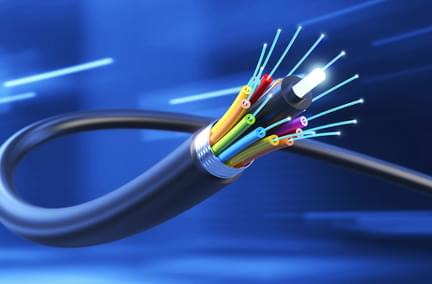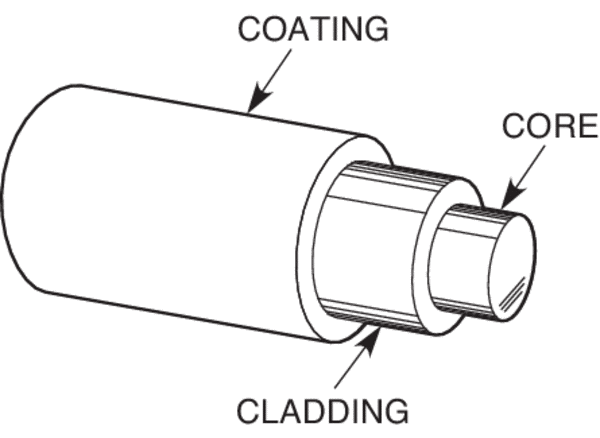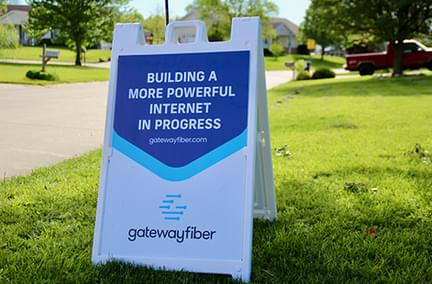Fiber Optic Myths: Busted
Jul 5, 2023 | Home Technology, Helpful Tips, Technology News
Whenever a new technology comes along, new enough that it has yet to gain large popularity, people are naturally suspicious of it until it's been thoroughly tested and proved itself trustworthy. It's the same wisdom that tells us not to buy the first model year of a new car because the bugs haven't been worked out yet.
Even with fiber internet's increasing reach and adoption worldwide, it's easy to still be suspicious of it just because it's newer than copper and looks so delicate. How can something made from a strand of glass as thin as a hair on your head be reliable and sturdy enough to consistently transmit the internet?
Let's look at some of the common myths surrounding fiber optics...and bust them.
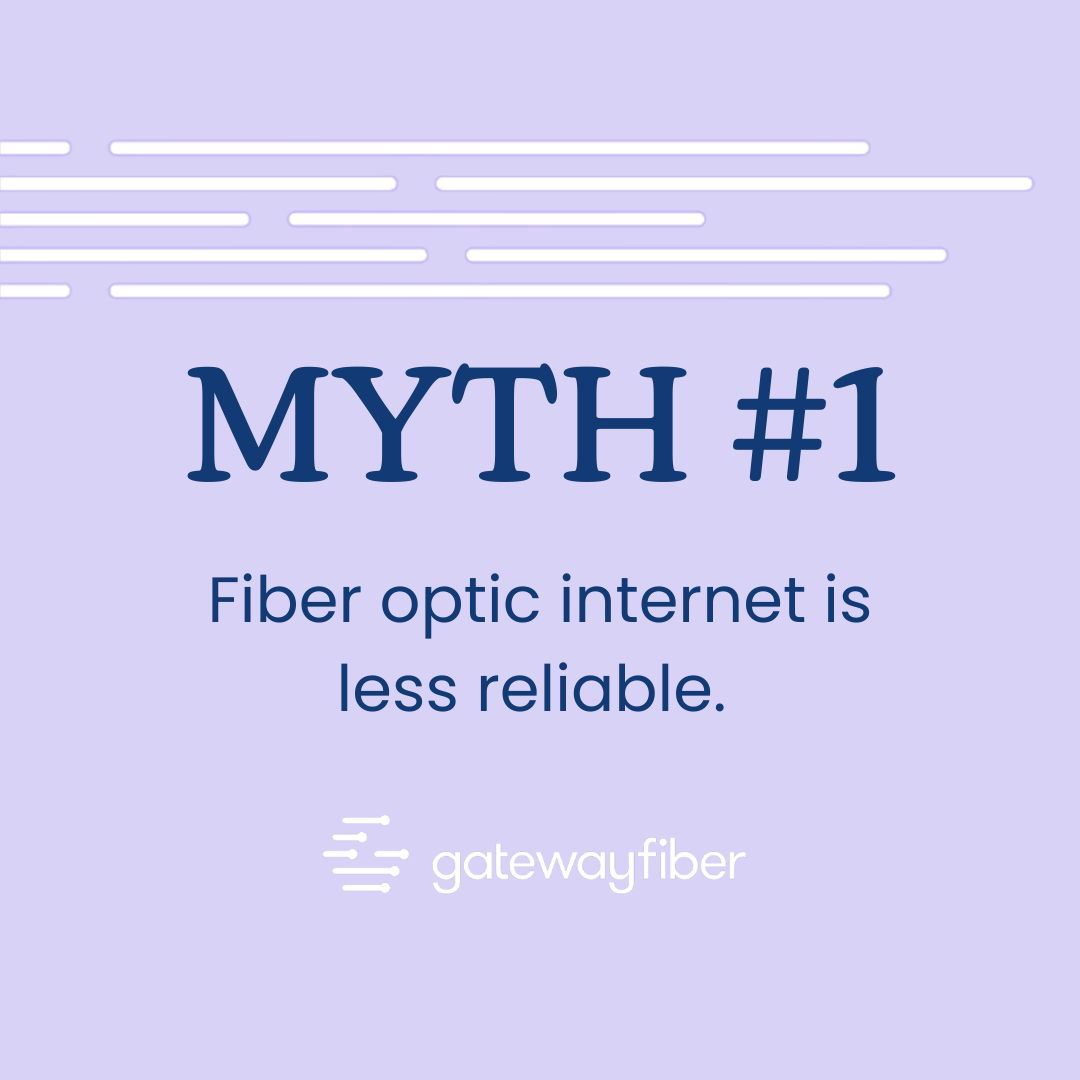
Is fiber optic internet reliable?
One measure of a technology's reliability is to check its global acceptance. Does it work on a large scale? Are enough people using it to demonstrate its practicality?
For well over 30 years, fiber optics has proven itself on the international stage with millions of miles of undersea cables stretching between continents. It's what allows you to log in to an overseas website from your home here in the US without a noticeable slowdown caused by the distance.
Not only is fiber optic internet extremely fast, it is naturally less susceptible to interference and other outside influences because it doesn't rely on an electrical signal, thus improving its reliability. Since we use a complete fiber optic network, we guarantee our customers 99.998% reliability and uptime.
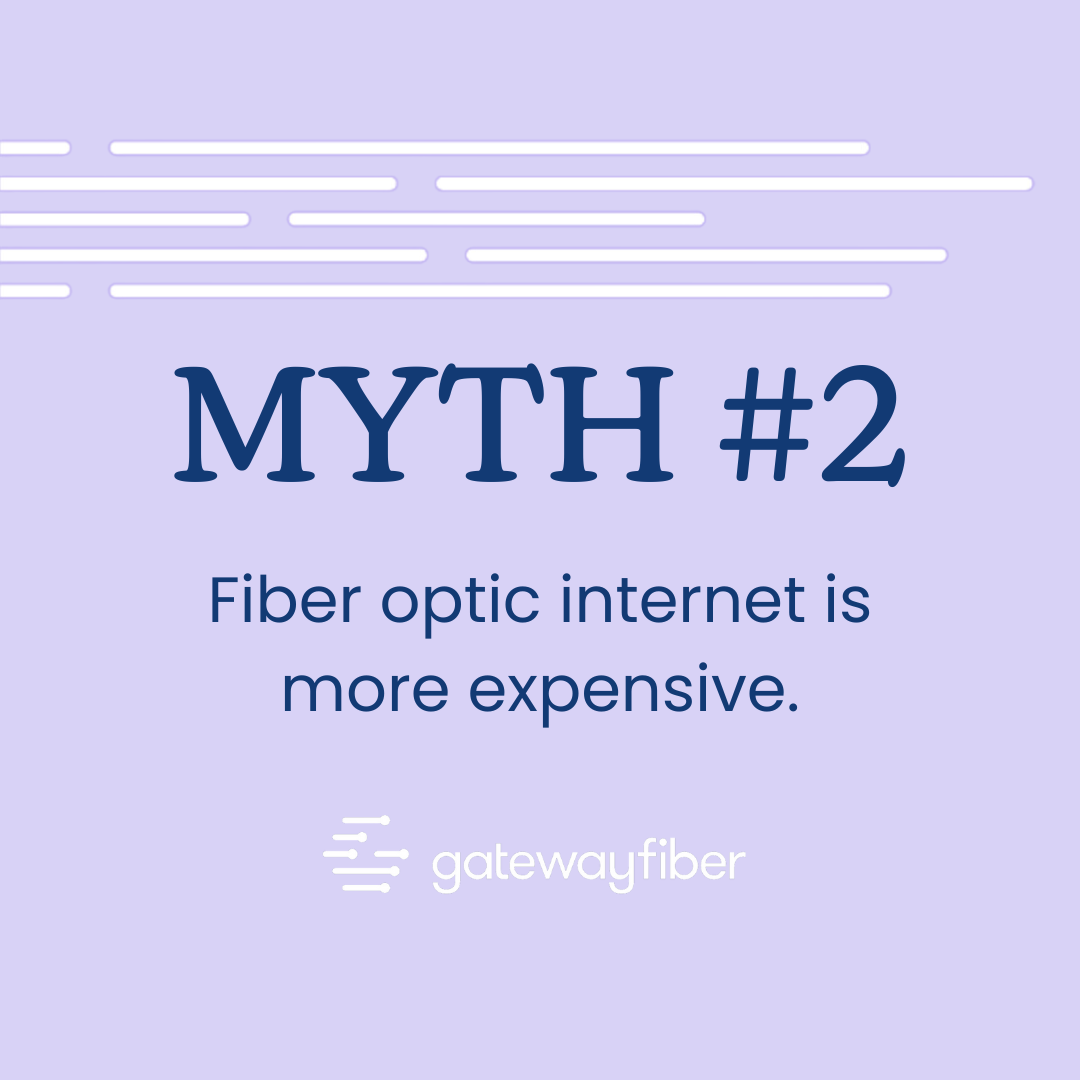
Is fiber optic internet really more expensive than other internet?
In fiber's early days, it was more expensive than other internet connections. The technology was new, and demand was low. We just didn't need high-speed internet back then because we were only sending emails and viewing very basic websites. Copper was king for decades.
But that's all changed now, with more internet providers switching to fiber connections to keep up with the increasing bandwidth demands of a more connected world.
When considering cost, it's important to look not just at your monthly bill but also at what you're getting for your hard-earned money. How many megabits per second (Mbps) are you getting? What is your upload speed in relation to your download speed? How many devices can be online at once without adversely affecting one another's speed?
For example, a 600 Mbps fiber internet package might cost you $75 per month, while a 150 Mbps cable internet package might cost the same or sometimes more. In this case, which package is a better value? Which one gets you more megabits per dollar? Fiber is the clear winner. And you will be, too.
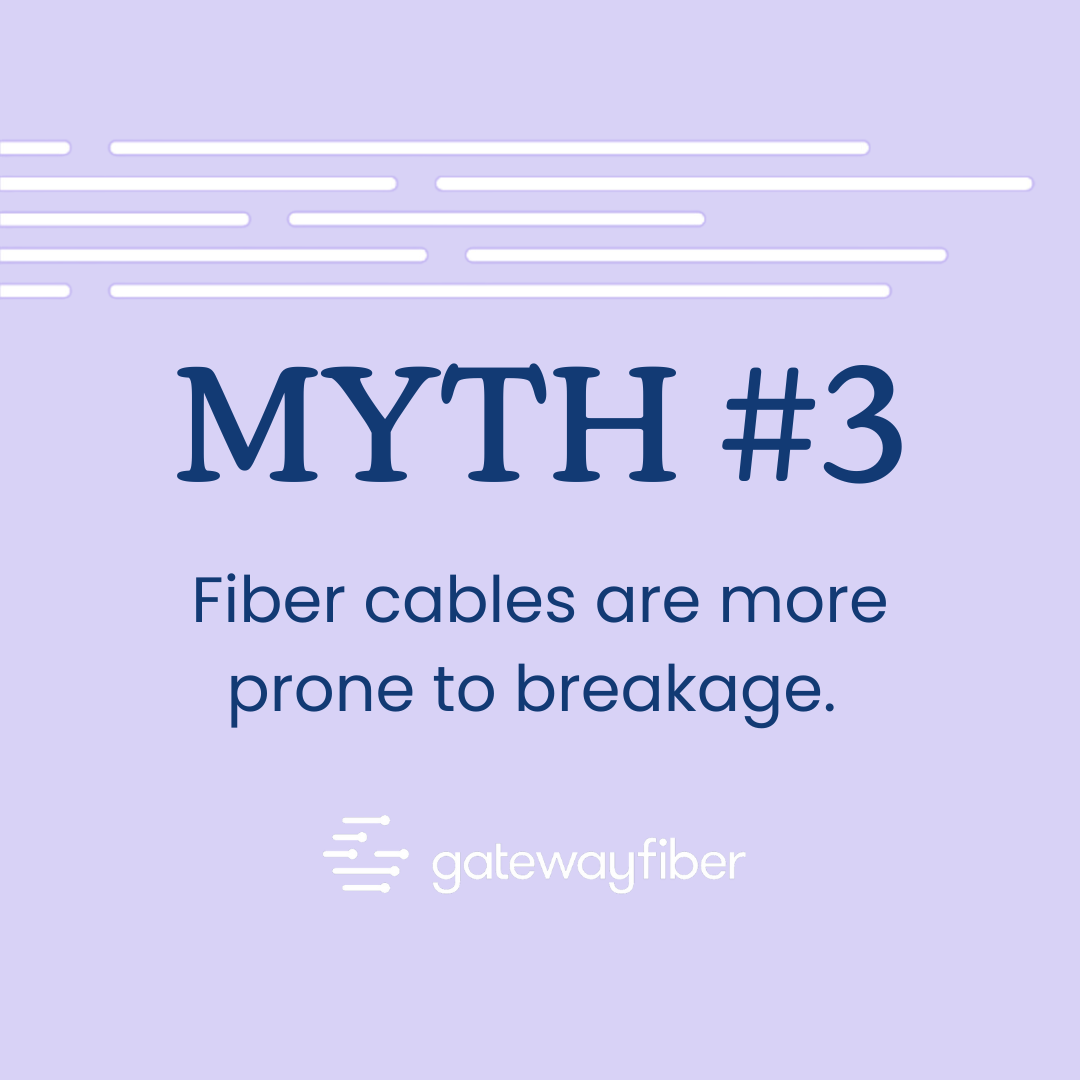
Aren't fiber optic strands too delicate to last?
Even though it's made out of thin glass, fiber is more durable than copper. How can that be?
Despite being significantly smaller and lighter than copper and made from glass, fiber strands are tougher and more rugged than copper and less likely to break during installation or after, resulting in a longer-lasting connection than with copper cabling. Fiber strands are also less susceptible to damage from weather, such as extreme cold or extreme heat.
Just to be doubly sure, however, we take one extra precaution and encase the fiber strand coming to your home in an armored cable housing that can withstand being stepped on and driven over and is highly resistant to weather.
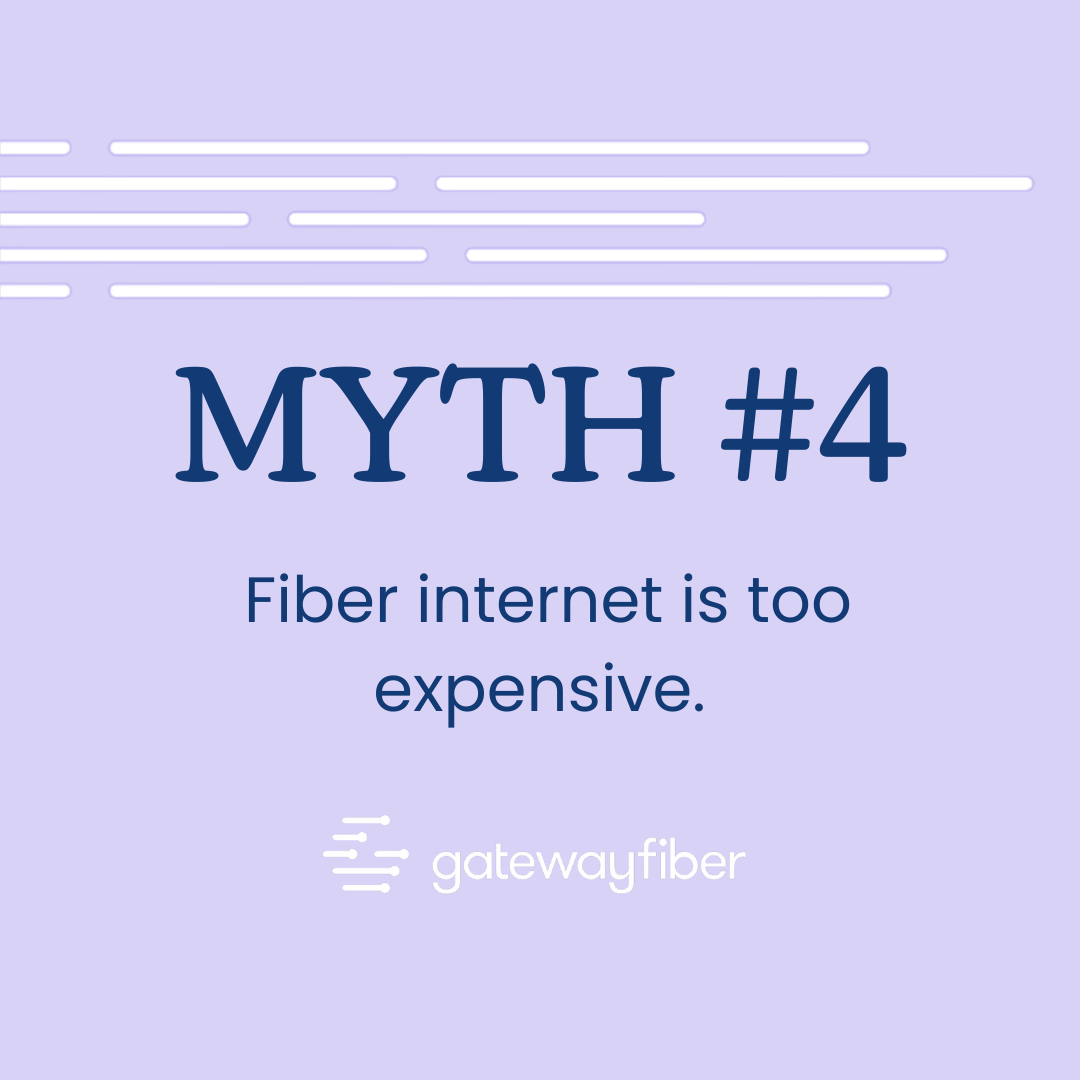
Can I really afford fiber internet?
While we don't know your budget like you do, if you have any sort of home internet connection at all right now, it's safe to say you can probably afford fiber internet. With monthly prices equal to or below similar cable, DSL, and 5G plans, fiber internet is no longer only a rich man's game. Just about anyone can afford fiber optic internet today.
Our home internet plans start at just $65 per month for 300 Mbps, which is plenty of speed for households with 10 or fewer connected devices. Need more speed for more devices? Double it to 600 Mbps for only $10 more per month. Oh, and those speeds are symmetrical, meaning download and upload are the same.
Not only is fiber internet not expensive, it represents the best value by far in internet connectivity.
- fiber optics
- Fiber internet
- mythbusters
- fiber optic myths

